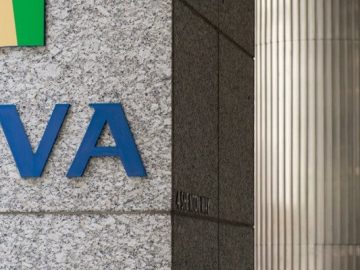Social media companies have defended their content moderation practices to a Parliamentary committee investigating online misinformation, arguing that they already have effective processes and systems in place to deal with the spread of false information on their platforms.
On 25 February 2025, the Commons Science, Innovation and Technology Committee (SITC) grilled tech giants X, TikTok and Meta as part of its inquiry into online misinformation and harmful algorithms.
Opening the session, committee chair Chi Onwurah said the topic has unusually “strong public interest” for a technology-related issue, and that the committee is concerned about misinformation “being disseminated at industrial scale”. She added that this particular session would primarily focus in on the spread of disinformation during the Southport Riots in 2024.
In the wake of the fatal stabbing of three girls in Southport on 29 July 2024, social media became awash with unsubstantiated rumours that the perpetrator was an asylum seeker of Muslim faith.
While this was later confirmed to be completely false, Islamophobic far-right rioting broke out in more than a dozen English towns and cities over the next few days, specifically targeting mosques, hotels housing asylum seekers, immigration centres and random people of colour.
Responding to MPs’ questions about social media firms’ response to the unrest, Chris Yiu, director of public policy for Northern Europe at Meta, said the organisation’s trust and safety teams took down around 24,000 posts for breaking its policies on violence and incitement, and a further 2,700 for breaking its rules on dangerous organisations.
“One thing that I think is challenging in these fast-moving incidents is that it can be difficult to establish the facts on the grounds in real time,” he said. “I think that is something which we will need to have a reflection on and understand how we could do that.”
Community guidelines
Alistair Law, director of public policy and government affairs for the UK and Ireland at TikTok, added that while the vast majority of content on the platform during the unrest was either documentary or bystander footage, tens of thousands of posts containing “violent comments” were removed by the company for violating its community guidelines.
Echoing Yiu, Law also said it can be difficult to “establish the veracity of potential claims” in fast-moving events, adding that there needs to be collaboration throughout the “wider value chain” of information sharing, which includes broadcast media, as news coverage and social media content can create negative feedback loops around misinformation.
Wilfredo Fernández, senior director for government affairs at X, said the company has “very clear protocols in place on how to deal with this content and the challenges that arise in the aftermath of an attack like this”.
He added that X’s “community notes” model was able to provide useful context to users, and that prominent far-right figures like Tommy Robinson and Andrew Tate received such notes in relation to their posts about the Southport attacks. “X has no power to place or remove a note,” said Fernández. “It’s completely powered by people.”
In response to MPs highlighting instances of blue-tick X accounts making posts about the location of immigrants and encouraging rioters to go there (and which did not receive community notes), Fernández said the company did take various actions on tens of thousands of posts. “To sit here and say we get the right call every time, that would be wrong,” he said.
Labour MP Emily Darlington also challenged Fernández over extreme messages she had personally received on the X platform in November 2024, in which she was described as “a traitor to the British people” and threatened with hanging after sharing a petition to save her local Post Office.
Darlington said she reported the post as harmful and violent speech, in violation of X’s rules that state expressing desire for violence is not allowed, and listed other violent or racist comments made by the same account.
Asked by Darlington whether this was acceptable, Fernández said the comments were “abhorrent”, but that while he would have content moderation teams review the account for terms of service violations, he could not make any assurances that it would be removed.
Meta was also criticised for its removal of third-party fact-checking in favour of an X-style “community notes” approach, which MPs argued would allow “racist misinformation” to spread after citing numerous examples of Meta users posting racist, antisemitic or transphobic comments on the platform.
“We have received feedback that … some areas of debates were being suppressed too much on our platform and that some conversations, whilst challenging, should have a space to be discussed,” said Yiu.
Both Onwurah and Darlington pushed back, arguing that some things – such as statements denying the existence of trans people or deriding immigrants – should be not be characterised as up for debate.
The representatives from Meta and TikTok said that while the scale of social media use presents clear content moderation problems, each firm takes down upwards of 98% of violent content.
Processes and systems
Responding to questions about whether the Online Safety Act (OSA) being in force at the time of the riots would have changed their approach at all, every company said they already have processes and systems in place to deal with misinformation crises.
In the wake of the riots, Ofcom warned that social media firms will be obliged by the OSA to deal with disinformation and content that is hateful or provokes violence, noting that it “will put new duties on tech firms to protect their users from illegal content, which under the Act can include content involving hatred, disorder, provoking violence or certain instances of disinformation”.
The online harms regulator added that when the act comes into force in late 2024, tech firms will then have three months to assess the risk of illegal content on their platforms. They will then be required to take appropriate steps to stop it appearing, and act quickly to remove it when they become aware of it.
“The largest tech firms will in due course need to go even further – by consistently applying their terms of service, which often include banning things like hate speech, inciting violence and harmful disinformation,” said Ofcom, adding that it will have a broad range of enforcement powers at its disposal to deal with non-compliant firms.
“These include the power to impose significant financial penalties for breaches of the safety duties,” it said. “The regime focuses on platforms’ systems and processes rather than the content itself that is on their platforms.”
However, while a number of the Online Safety Act’s criminal offences were already in force at the time of the unrest – including those related to threatening communications, false communications and tech companies’ non-compliance with information notices – some said at the time it was unclear if any of these would be applicable to those using social media to organise racist riots.
“Instead, the police are likely to have to rely on offences under the Public Order Act 1986, which is the main piece of legislation which penalises the use of violence and/or intimidation by individuals or groups,” said Mark Jones, a partner at Payne Hicks Beach. “Whilst the home secretary may have said ‘if it’s a crime offline, it’s a crime online’, and whilst that may be correct, the Online Safety Act provides no additional support to the pre-existing criminal law covering incidents of incitement of violence.”




